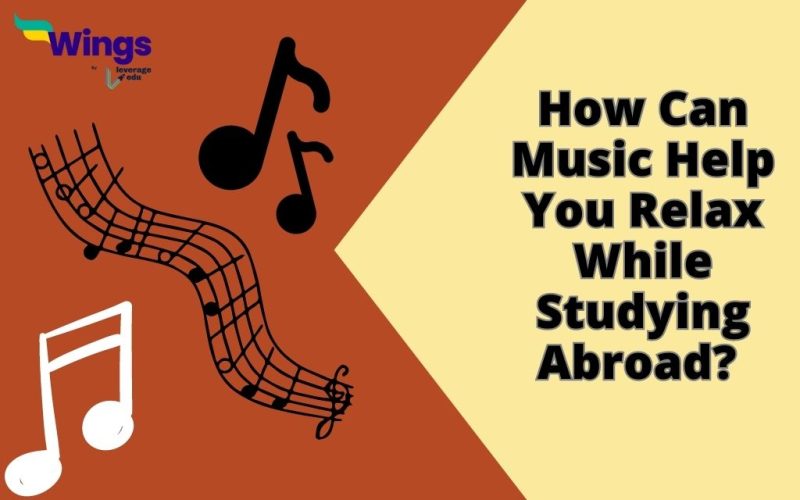Consider going on a long drive with your significant other on a rainy day. Good music is the only thing that is required in such a circumstance to make it truly unforgettable. A romantic long drive without some nice music is like a cuisine lacking flavours or ingredients. Now consider your existence without music.
It’ll seem dreary and bland, right?
It could even be argued that music is the most underappreciated aspect of life, ingrained in us from birth! If you pay close attention to your heartbeats, you will notice a definite rhythm and melody to them.
Not only that, but everything around us is making a melody with each passing second. It’s only that we tend to ignore it. As one of the most prolific musicians of all time, our mother nature continues to create music without you even noticing it.
This Blog Includes:
Effects of Music on Human Psychology
Consider the following example. What exactly do you feel when you listen to music that appears to be happier in tone?
You’ll be happy, right? Similarly, listening to sad music might make you feel glum or melancholic. Music, by definition, is capable of eliciting specific emotions in humans.
That being said, music has a far greater impact on our human psychology, mood, and even emotions than we realise.
As previously stated, fast-paced music can be used to assist concentration. This style of music can be instrumental if you are a student studying for an exam abroad. Plug in your earbuds and listen to this music, and you will notice that your concentration level has doubled, or perhaps tripled. Similarly, uplifting or chirpy music can raise your mood, instil optimism, and help you see life more positively.
Slow music, on the other hand, can assist you in calming and relaxing your mind and muscles. If you’re feeling nervous or anxious about something, listen to some relaxing music at a slower speed. Slow music, which is frequently utilised in therapeutic practices, can be a godsend for people who get jumpy and fidgety even in the slightest of situations.
To summarise, music can be really beneficial for relaxation and stress management, but we’ll get to that later.
Contrary to common misconception, the effect of music on our psyche is not something that can be clubbed as preposterous or irrational. It does have a scientific explanation. According to studies, music with roughly 60 beats per minute might stimulate the brain to synchronise with the rhythm, resulting in alpha brainwaves; these brainwaves are responsible for keeping us attentive and alert.
Delta brainwaves (5 hertz) are widely used to describe sleep-inducing brainwaves. Researchers at Stanford University have suggested that listening to music can create changes in brain activity, comparable to when someone is on medication. In some ways, music can be used to relieve tension, and it is completely free! Isn’t it amazing?
Types of Music Best for Reducing Stress
Slower-paced music always takes the top spot when it comes to stress reduction. For instance, you can listen to slower-paced music if you’re nervous before a test. It does work like a charm. Music may be both meditative and therapeutic. But, what is the greatest music to listen to in order to unwind?
Even when played relatively loud, folk music such as Native American, Celtic, and Indian music, particularly the symphony formed by stringed instruments, drums, and flutes, are quite good at relaxing the mind. Natural symphonies formed by the pitter-patter of rain and the rumble of thunder may also be soothing.
Music as your Best Friend in Low-Phases
As previously said, music is restorative or therapeutic in nature. It can assist people in reducing tension and attaining a level of consciousness. For aeons, music has been used as a therapeutic aid. Music therapy is a practice that includes listening, communicating, and understanding.
The practice is widely employed in hospitals and educational institutions, where music is primarily used to unwind patients and provide a safe environment for them. This sort of therapy accomplishes the following goals:
- Shifting one’s focus from problems to solutions.
- Providing a rhythmic framework for relaxing and breathing.
- Assisting clients in feeling pleasure and contentment.
- Assisting them in reaching a deep level of relaxation.
To summarise, music therapy is unquestionably effective at relieving negative tension and burden.
Music Therapy Tools
Music therapy necessitates that all parties be as expressive and collaborative as possible. Individuals must only engage in such therapy under the guidance of a specialist.
The guitar and piano are two popular instruments for music therapy. Introducing such tools help therapists create a relaxing and tranquil ambience. Speakers, screens, and paper/pen are the other key items utilised in music therapy.
Music can be really beneficial for relaxation and stress management. Suppose you are a student studying overseas and your examinations are imminent. As a student living abroad on their own, the whole experience may appear cumbersome and daunting. In such cases, music therapy might prove to be a godsend for such people. One can listen to tranquil and serene music to relax their thoughts and anxieties. To summarise, music can be a very inexpensive and effective tool for relieving tension and anxiety.
For more such blogs, stay tuned with us and don’t forget to follow us on Instagram, Facebook, Twitter, and Linkedin.
 One app for all your study abroad needs
One app for all your study abroad needs
















 45,000+ students realised their study abroad dream with us. Take the first step today.
45,000+ students realised their study abroad dream with us. Take the first step today.